How the brain perceives time?
How the brain perceives time?
Introduction
I’ve often caught myself saying, “Time flew by,” or “That felt eternal.” Subjectively, our perception of time can stretch or shrink—but what if our minds don’t just feel time differently—they actually shape it? What if time isn’t a fixed river but a clay we mold with every thought, emotion, and memory?
In 2025, both science and philosophy are leaning toward this view: time might be every bit as mental as physical. Let’s explore what it means if mind and time are intimately connected—and how that could reshape everything we think we know about reality.
How might our minds shape the flow of time?
Psychologists and neuroscientists have long documented that time passes differently depending on mental state. Moments of fear drag on; happy hours vanish. Recent research shows that our judgment of duration is constructed by how our brains record change and sequence events. In essence:
- Attention anchors time: More focus = richer memory = longer perceived duration.
- Emotional peaks distort time: Trauma makes seconds feel like minutes.
- Memory load matters: Busy minds experience slower time.
In this view, time—at least how we experience it—depends entirely on the architecture of our consciousness. If our brains can bend time this way, might our minds actually help create its fabric?
Our Thoughts
At EdgyThoughts, we feel that time’s fluidity is one of the most magical—and underappreciated—dimensions of human experience. If our reality of time is sculpted by our consciousness, then every choice, every glance, every memory is contributing to the building blocks of reality. That’s not just philosophically thrilling; it reframes how we live each moment.
Pros and Cons of Mind-Shaped Time
| Pros | Cons |
|---|---|
| Offers agency over how we experience life. | Subjective time can be unreliable or deceptive. |
| Leads to deeper mindfulness and presence. | Challenging to measure objectively. |
| May inform mental health and therapy. | Could blur lines between perception and reality. |
| Bridges cognitive science with metaphysics. | Hard to integrate with strict physical models. |
| Encourages personal growth through attention practice. | Might lead to overemphasis on self-curated experience. |
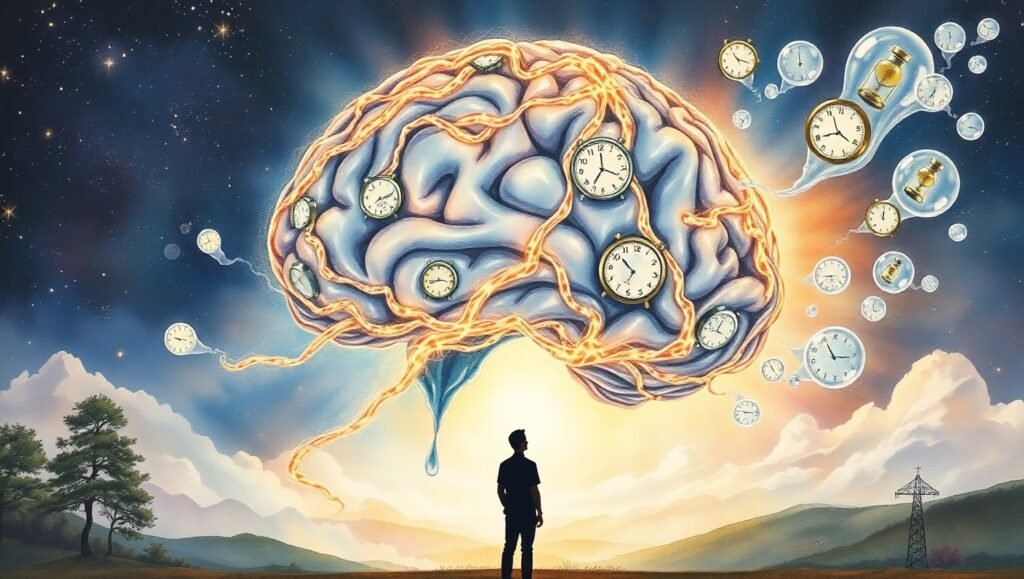
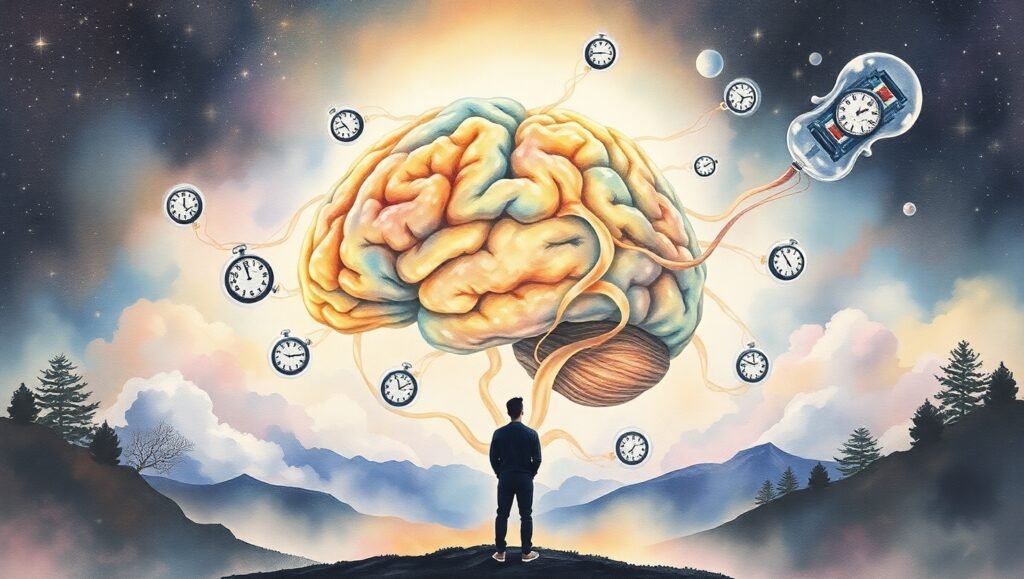
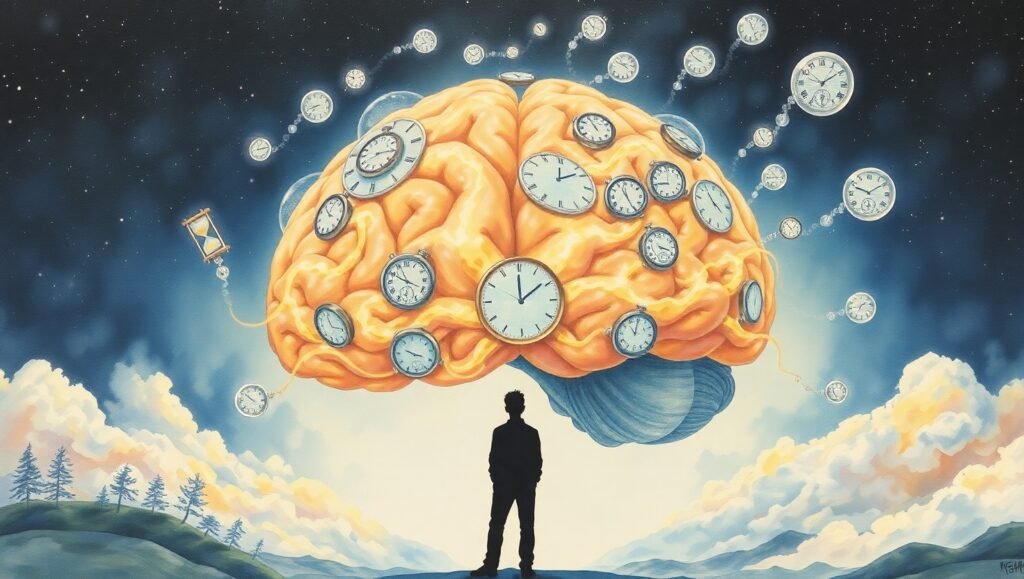
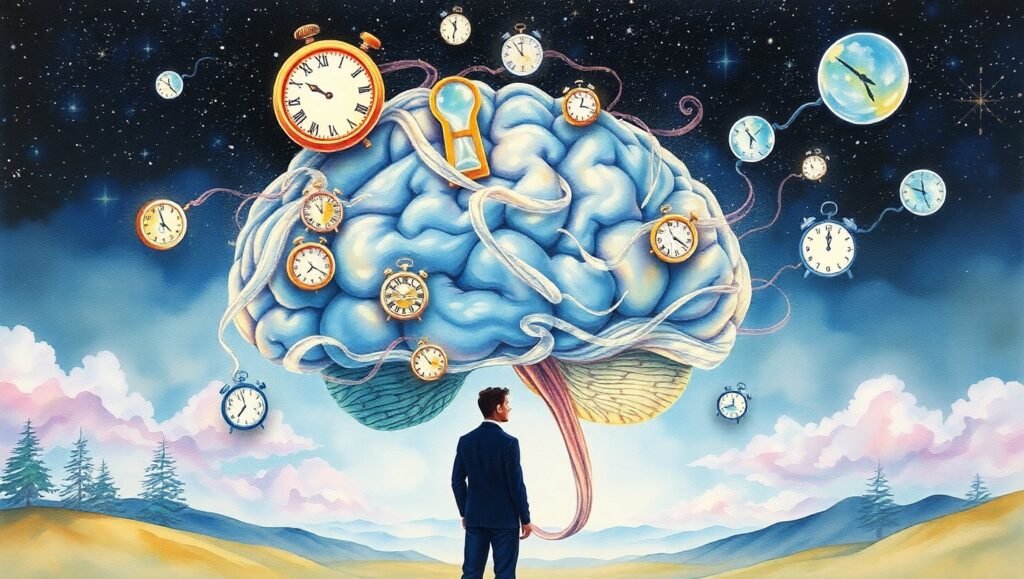
Can altering our mindset change time itself?
Yes—at least in how we live it. Techniques like meditation, flow state practices, and memory exercises actively retrain our brains’ time perception. Meaning:
- Meditation slows time by focusing on the moment.
- Flow states erase external time: “I never saw that hour pass.”
- Memory journaling expands time by capturing details.
If enough minds do this, could the collective temporal rhythm of a generation shift—impacting culture, social patterns, or even how societies structure work and life?
Do cultures shape time differently?
Absolutely. Anthropologists show that in Western societies, time is linear and scheduled. In many Indigenous and Eastern cultures, time is cyclical or relational. This isn’t just philosophy—it’s how people feel and organize reality. If so, time itself becomes a social mind construct—molded collectively by belief, rhythm, and memory.
Key Points You Should Know
- Time perception is constructed by the brain.
- Emotions and attention shape experience of time.
- Mindset practices can actively stretch or compress time.
- Culture defines communal temporal flow.
- Theory: mind+time might co-create reality.
Explaining Each Point
- 1: Brain studies confirm time isn’t linearly sensed—it’s inferred.
- 2: Fear and joy have direct, measurable effects on time estimation.
- 3: Mindfulness and flow provide real-time control over perceived time.
- 4: Societies with circular time constructs have different work and ritual structures.
- 5: Some theorists suggest consciousness may help stabilize time’s structure.
What We Think
We at EdgyThoughts believe this notion is empowering. It suggests that, while we can’t stop the clock, we can reshape our experience of its passage. When we say, “I’ll give you five minutes,” that time can feel vastly different depending on your state of mind. And if enough of us shift collectively? Perhaps the rhythm of life itself changes.
This isn’t just philosophy—it’s an invitation. To slow Monday morning, savor Sunday at 2 pm, or choose flow over burnout. The idea that minds shape time may not replace clocks—but it could change how we live “on them.”
🔗 Related Articles from EdgyThoughts.com
- What If Time Doesn’t Exist at All?
https://edgythoughts.com/what-if-time-doesnt-exist-at-all/
🌐 External Resource
Learn more about the science of time perception here:
Wikipedia – Time Perception
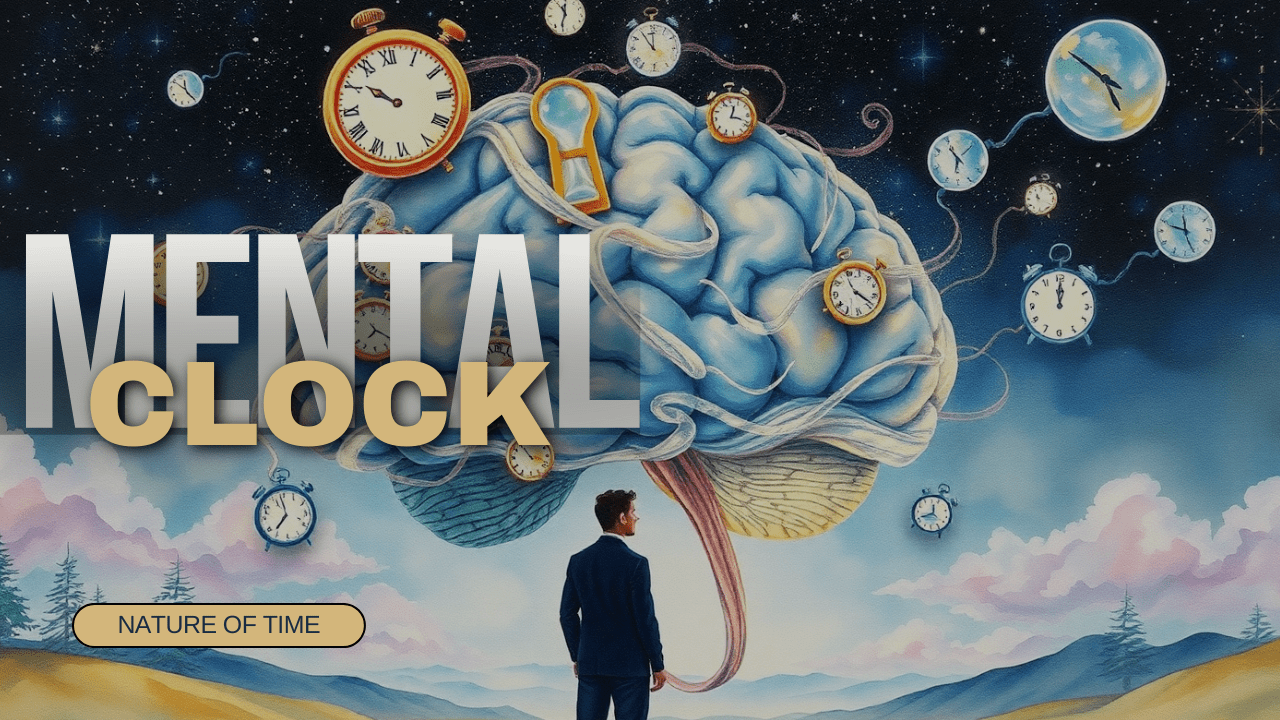





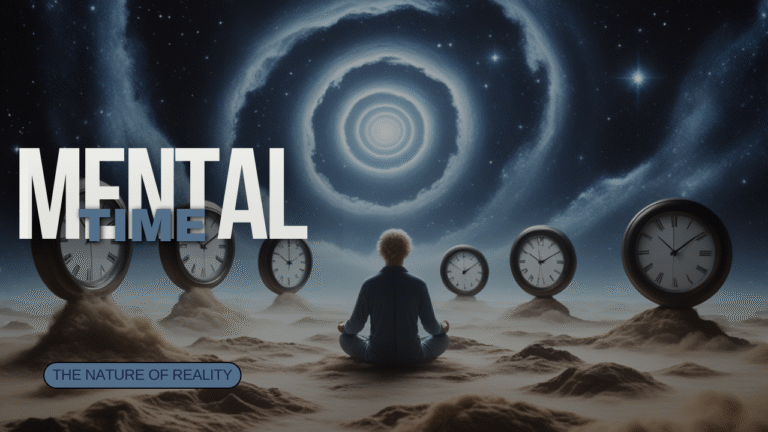
One Comment
Comments are closed.